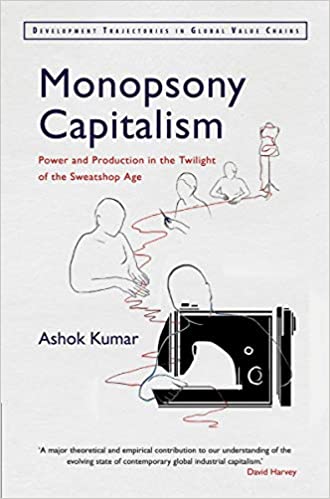Product desciption
Monopsony Capitalism Ashok Kumar by Ashok Kumar 9781108731973, 110873197X instant download after payment.
"Monopsony Capitalism explores the combination of capital's changing composition and labour's subjective agency to examine whether the waning days of the 'sweatshop' have indeed begun. Focused on the garment and footwear sectors - which epitomize the leading edges in the advance of globalization and the spread of vertically disintegrated value chains - the book introduces a universal logic that governs competition and reshapes the chain. Simply put, deregulation produces high degrees of monopsony power, increasing the value share for the lead firm. This intensifies competition, exerts downward pressure, and winnows the number of suppliers able to compete. The result is supplier-end consolidation. Consolidation increases the surviving suppliers' share of value, which expands access to finance, facilitates self-investment, and raises entry barriers. In 2005, the regulatory regime that had once enforced a degree of spatial inflexibility finally dwindled to nothing with the phase-out of the Multi-Fibre Agreement (MFA). The subsequent emergence of market spatial inflexibility, which gives labour new openings, occurs with free, unrestricted flows between supplier and buyer. This book analyses workers' collective action at various sites of production primarily in China, India, Honduras, and United States, and secondarily in Vietnam, Cambodia, Bangladesh, and Indonesia. It observes how this internal logic plays out for labour who are testing the limits of the social order, stretching it until the seams show, and making it possible for bosses to come to the proverbial table, hat in hand, to hash out agreements with those who assemble their goods. By examining the most valorized parts of underdeveloped sectors, one can see where capital is going and how it is getting there. The findings contribute to ongoing strategies to bolster workers' bargaining power in sectors plagued by poverty, powerlessness, and perilous workplaces. Indeed, with these changes in global capitalism and a capable labour movement, there's hope yet that workers may close the gap"--


